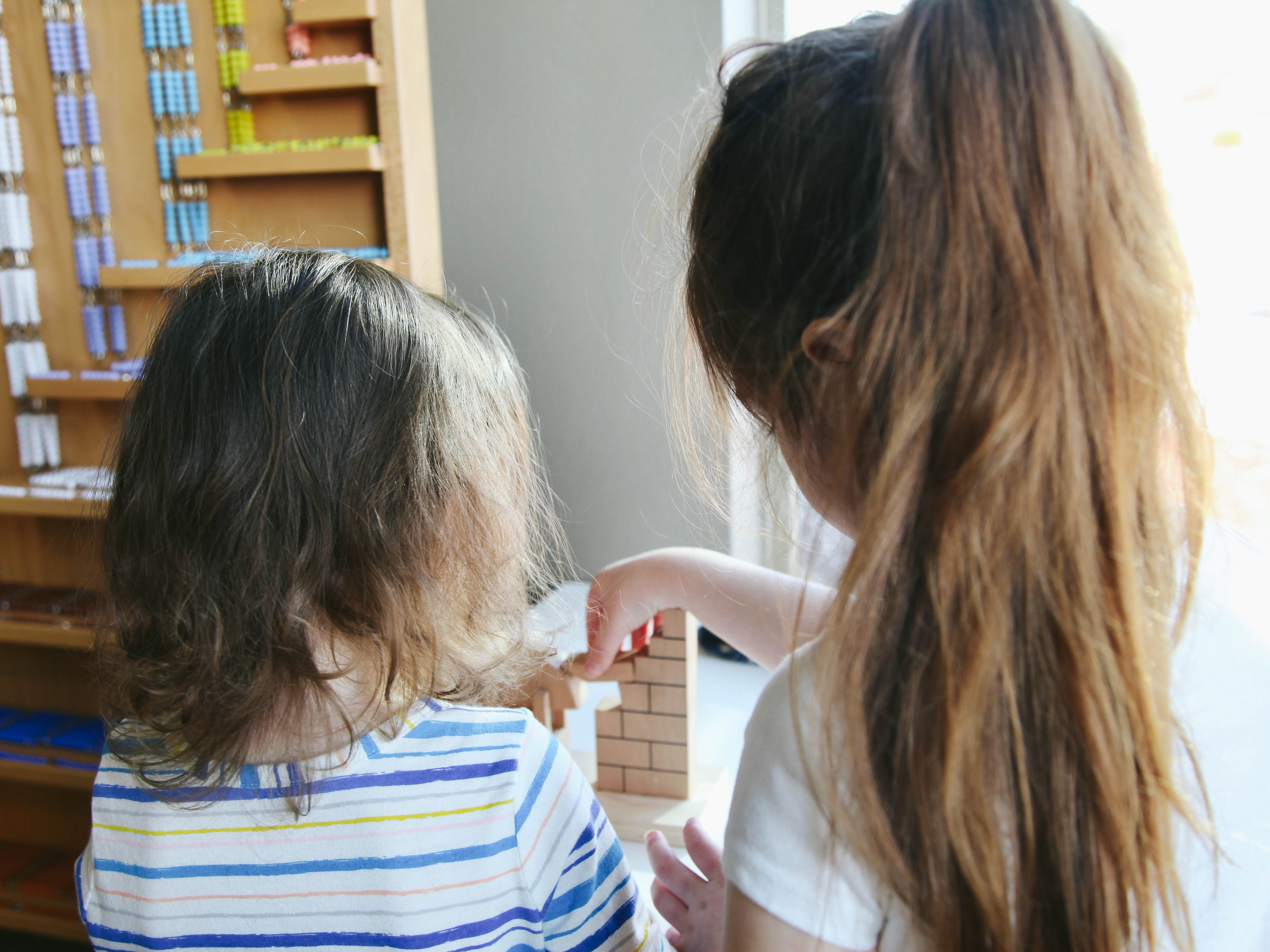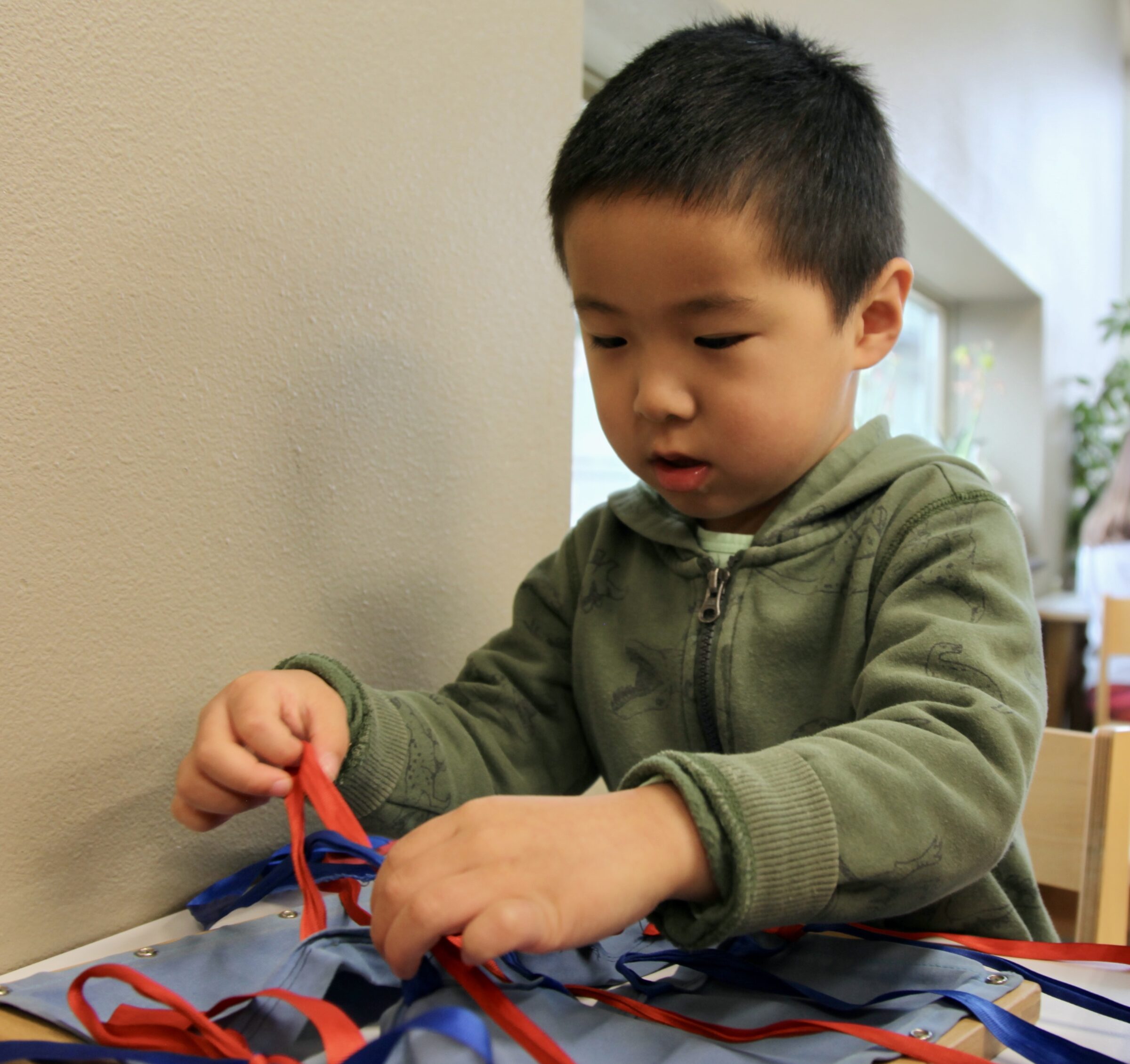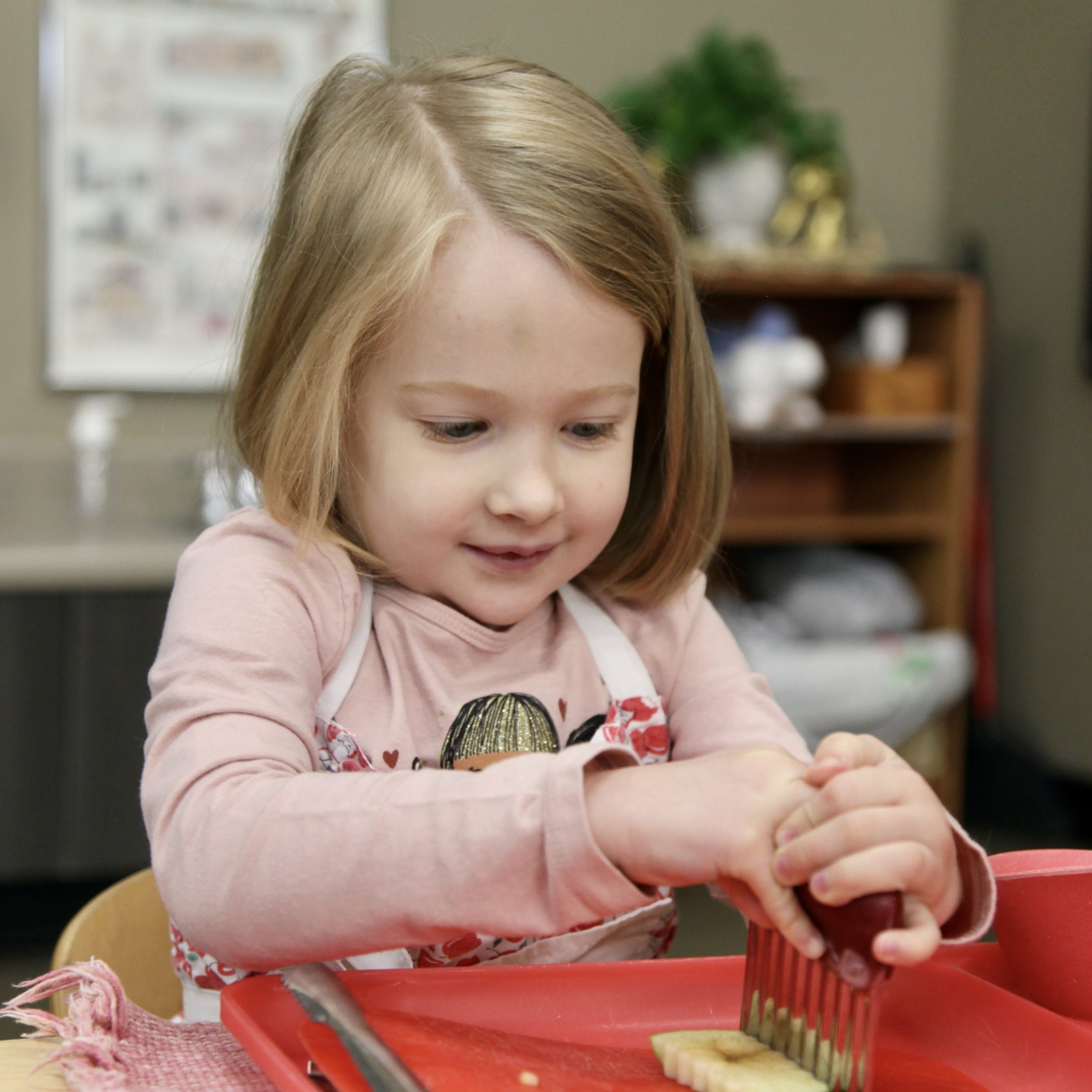Learning Social Skills
Thoughts & Reflections
Montessori is founded on an idea that happy children are successful learners. It’s education of the Whole Child; not just focusing on academics but also on internal skills, like tenacity and problem-solving, and interpersonal skills, like patience and responsibility. It’s a bit of circular logic, though, as each of these aspects serves the other, benefits the other, develops from the other.
Montessori is also known for “Indirect Preparation,” getting a skill ready before we need to use it. A simple example is a pouring work on the shelf — before I want a child to go to the sink and fetch warm water for Hand Washing, I need to help them be successful with the skill of pouring. We work on pouring with beans, grains, water, in various containers with higher levels of skill, but it’s not a contextual skill, it’s simply skill-building.
The more we learn about Montessori, the longer we do this work, the more layers unfold, the brilliance and the simplicity are all there.

One of the fundamental aspects of a Montessori classroom is the mixed-age setting. Since children don’t typically change classrooms, and most incoming children are at the youngest end of the age-range, this means most of the children are returning year after year, growing from one of the youngest to one of the oldest children in their classroom community. New children are coming into a well-established community, where they learn the “rules,” or how we act and treat one another, through observation, mentorship, and simply being around older, more experienced children.
Take, for example, social interactions.
It’s one of the gifts of having a sibling, learning how to play, how to disagree or quarrel and still love one another, how to set and to be respectful of limits, how to make friends. But it’s also not always an option. Older siblings don’t have as much mentorship built in, only children don’t have this natural learning experience, and not all siblings get along. This is where the magic of a Montessori classroom is so clear.
We had a story shared with us, along with permission to share it on the blog.
A not-yet-three-year-old, an only child who’s been in a Montessori setting since birth, was playing at a popular park. Another young child, about the same age, came and played in the vicinity. The not-yet-three-year-old said, “Hi! My name is Sam, what’s your name?” The new child introduced themselves, “Sam” replied, “Oh! Hi! I like that name!” and they proceeded to play together for a little while, before very appropriately resuming their parallel play.
The parent not only relayed this story, but also their admiration, delight, and even a bit of awe and this interaction, even while they and we know, this was not out of character for this introverted, sometimes even shy child, or for any of the many children in Montessori classrooms around the world.
“If someone had asked me to introduce myself when I was little, I would have burst into tears.”

This is how social skills are taught.
When a child is new, there are many big, kind, unknown, friendly faces eager to show you the way. A new child is just a friend you haven’t made yet. If you burst into tears, there is someone to rub your back or give you space, in the wonderful way only children know how to intuit. If you get two snacks cause why wouldn’t you, cheese crackers are everyone’s favorite and there just sitting there along with the plate for you to help yourself whenever you want, someone big and older and more experienced kindly and firmly tells you, “we get one snack.” Cool, got it, thank you, I needed to know that. There’s not one ounce of shame, there’s also not one bit of confusion. Confidence is built through realizing you are the one with more experience and more knowledge, and having this safe space to try showing others something you already have mastered. I have something to offer — to this community, to others, to the world.
In this way, social skills are taught. Or intuited, or mentored, as might be a more appropriate explanation. This is education of the Whole Child: indirect preparation of compassion and bravery, so when the moment comes, you’re ready to be a friend.
Written by:
Charlotte Snyder



